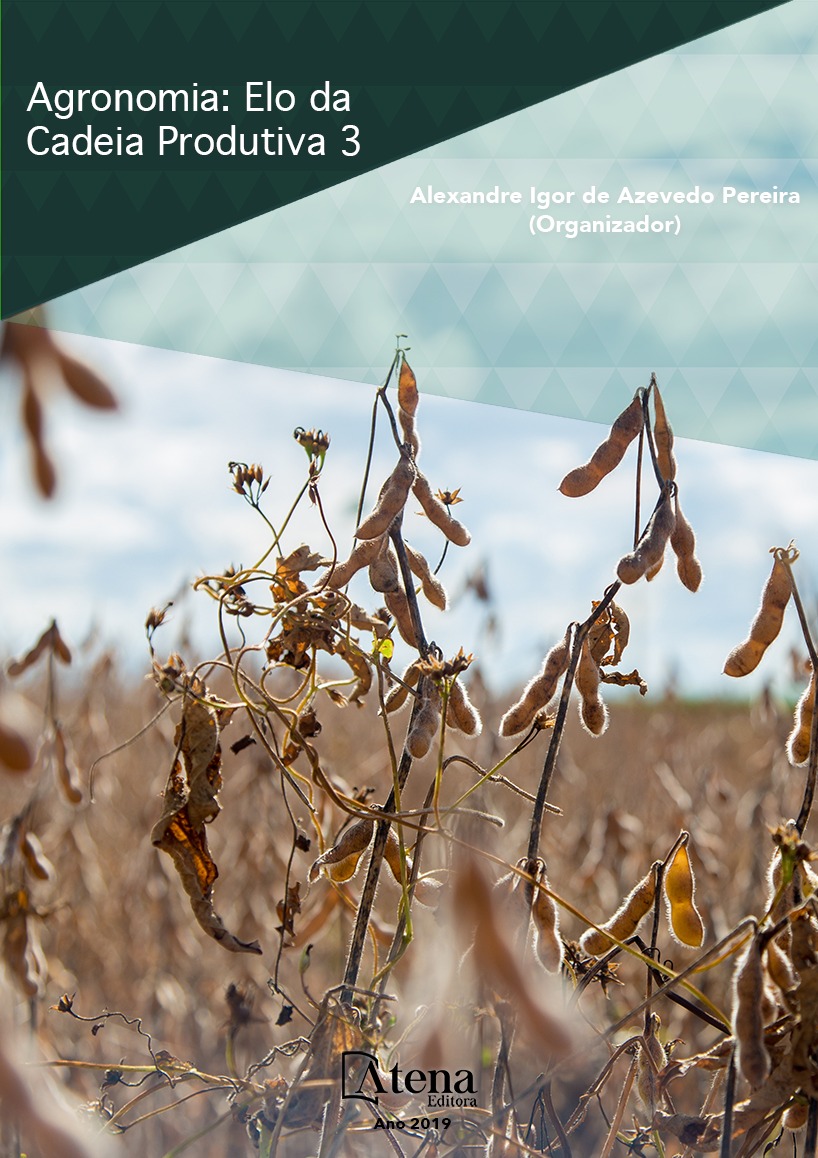
CONTRIBUIÇÃO DO SILICATO DE POTÁSSIO NA REDUÇÃO DA INTERFERÊNCIA DE Cyperus rotundus EM Cucumis sativus
A interferência de Cyperus
rotundus L (Cyperaceae) no pepino conserva é
empecilho na sua produção. A planta de pepino
é responsiva a silicatos conferindo resistência
contra patógenos e herbívoros. Todavia, o
potencial do Silicato de Potássio (K2
SiO3
) em
amortizar a interferência causada por ervas
daninhas é desconhecido. O objetivo foi
avaliar o desenvolvimento radicular e produção
do pepino pulverizado com K2
SiO3
e sob
interferência de C. rotundus. O experimento
foi conduzido em estufa no verão e campo no
inverno. Para ambas as condições se utilizaram,
blocos casualizados, com quatro repetições
e cinco tratamentos: T1 (pepino sem K2
SiO3
),
T2 (pepino com K2
SiO3
), T3 (interferência
tiririca em pepino, sem K2
SiO3
em ambos), T4
(interferência tiririca em pepino, com K2
SiO3
no
pepino) e T5 (interferência tiririca em pepino,
com K2
SiO3
na tiririca). As raízes do pepino
foram mais compridas quando as plantas foram
pulverizadas com K2
SiO3
do que aquelas sem
pulverização. Plantas de pepino, pulverizadas
com K2
SiO3, com e sem interferência de C.
rotundus, tiveram o mesmo número de frutos
por planta, massa média de frutos, colheitas
planta-1 e produtividade. Cyperus rotundus,
pulverizadas com K2
SiO3
, tiveram raízes mais
compridas e folhas maiores, no cultivo em
estufa no verão.
CONTRIBUIÇÃO DO SILICATO DE POTÁSSIO NA REDUÇÃO DA INTERFERÊNCIA DE Cyperus rotundus EM Cucumis sativus
-
DOI: 10.22533/at.ed.4251904047
-
Palavras-chave: Pepino, K2 SiO3 , ervadaninha, Estufa, Campo
-
Keywords: Cucumber, K2 SiO3 , weed, greenhouse, filed
-
Abstract:
The interference of Cyperus
rotundus L (Cyperaceae) in pickling cucumber
is an obstacle on its production. The cucumber
plant is responsive to silicates conferring
resistance against pathogens and herbivores.
However, the potential of Potassium Silicate
(K2
SiO3
) to compensate for interference caused
by weeds is unknown. The objective was to evaluate the root development and production of cucumber sprayed with K2
SiO3 and
under interference of C. rotundus. The experiment was conducted in a greenhouse in
summer and on winter in the field. For both conditions, we used a randomized block
with four replicates and five treatments: T1 (cucumber without K2
SiO3
), T2 (cucumber
with K2
SiO3
), T3 (cucumber interference with cucumber, without K2
SiO3
in both),
T4 (cucumber interference with cucumber, with K2
SiO3 in cucumber) and T5 (tacit
interference in cucumber, with K2
SiO3 in silica). Cucumber roots were longer when
the plants were sprayed with K2
SiO3 than those without spraying. Cucumber plants,
sprayed with K2
SiO3
, with and without C. rotundus interference, had the same number
of fruits per plant, average fruit mass, harvests plant-1 and yield. Cyperus rotundus,
sprayed with K2
SiO3
, had longer roots and larger leaves, in greenhouse cultivation in
the summer
-
Número de páginas: 15
- Alexandre Igor Azevedo Pereira
- Carmen Rosa da Silva Curvêlo
- Vanessa Meireles Caixeta
- Ricardo Lopes Nanuci
- Fernando Soares de Cantuário
- Leandro Caixeta Salomão
- Alexandre I. A. Pereira


